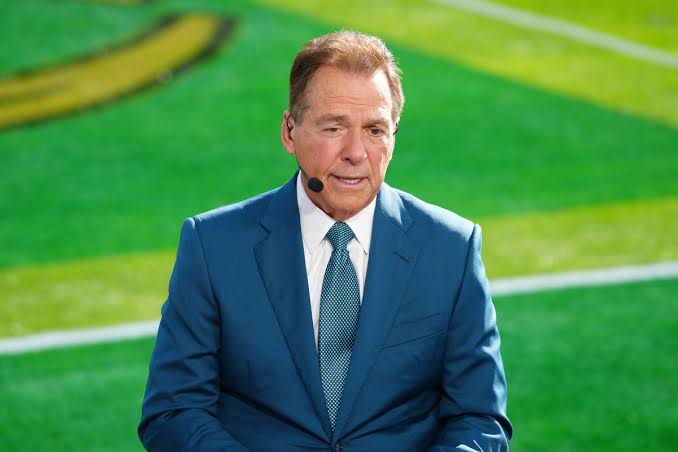The evolving landscape of Name, Image, and Likeness (NIL) in college sports has sparked widespread debate, drawing in figures from various spheres, including politics and sports. Amidst discussions about potential federal intervention to regulate NIL, a prominent attorney involved in the House settlement, Steve Berman, has advised a former president and a legendary college football coach to refrain from interfering in the ongoing developments.
Berman, who serves as co-lead counsel in the litigation that aims to classify college athletes as professionals, voiced his concerns following reports that the former president was considering an executive order to address the perceived chaos in the NIL system. These reports surfaced after a meeting between the former president and the retired University of Alabama football coach, a vocal critic of the current NIL framework.
In a statement, Berman described any potential involvement from these figures as “unneeded self-involvement.” He argued that college athletes are currently benefiting significantly from NIL deals and spearheading historic changes in collegiate sports. Therefore, he believes that any external interference, particularly from individuals he suggests are aiming to protect a system that previously generated substantial wealth for coaches while limiting athletes’ earning potential, is unwarranted.
Berman highlighted the financial gains that college athletes have begun to realize since the implementation of NIL rules. He emphasized that these athletes, who for decades performed without direct compensation in a multi-billion dollar industry, now have the opportunity to earn income based on their market value. This development, Berman argues, promotes fairness within college sports, empowering athletes, many of whom come from underrepresented backgrounds, to benefit from their hard work and talent.

Furthermore, Berman pointed out the educational and business opportunities that NIL presents for college athletes. These deals allow them to gain firsthand experience in business management, branding, and marketing. They also have the option to seek professional advice in areas such as law and finance, contributing to their overall development and future prospects.
The attorney also addressed the argument that the former coach’s intentions are rooted in a desire to protect the integrity of college sports. Berman suggested that the coach, who was once the highest-paid in college football, might be motivated by a desire to maintain a system that disproportionately benefited coaches and institutions. He questioned why the former president should be swayed by the opinions of someone who, according to Berman, did little to advocate for the financial well-being of student-athletes during his coaching career.
Berman’s comments come at a crucial time as the legal landscape surrounding college sports undergoes significant transformation. The House settlement, a potential landmark agreement, aims to resolve antitrust concerns related to the NCAA’s previous restrictions on athlete compensation. A key aspect of this settlement involves a framework for compensating current and former college athletes for the use of their NIL.

Judge Claudia Wilken, overseeing the legal proceedings, has raised concerns regarding certain aspects of the proposed settlement, specifically related to roster limits that could potentially impact the number of athletes on college teams. Berman expressed optimism that these concerns would be addressed, and the necessary paperwork would be filed with the court by the given deadline. He indicated that solutions were being explored to ensure that athletes who might lose roster spots under the new framework would have opportunities to remain in college sports.
The debate surrounding NIL reflects broader questions about the amateurism model in college sports and the rights of student-athletes in an era where college athletics generates billions of dollars annually. The emergence of NIL has allowed athletes to capitalize on their fame and influence, leading to a more equitable distribution of the economic benefits associated with college sports.
While some, like the former coach, have expressed concerns about the potential for NIL to erode the traditional values of college athletics and create a “pay-for-play” system, proponents argue that it is a necessary step towards recognizing the value and contributions of the athletes themselves. They contend that it allows athletes to benefit from their own hard work and achievements, mirroring the practices in other industries where individuals are compensated for their name, image, and likeness.
The potential for federal legislation or executive action to regulate NIL adds another layer of complexity to the ongoing discussions. While some stakeholders believe that a unified federal framework is necessary to create a consistent set of rules across all states, others advocate for allowing the current state-by-state approach to evolve, potentially through further guidance from the NCAA itself.
Berman’s advice to the former president and the former coach underscores the sensitivity surrounding the NIL issue and the potential for external interventions to disrupt the progress being made through legal settlements and evolving NCAA policies. As college sports navigates this new era of athlete compensation, the focus remains on finding a sustainable and equitable model that benefits both the athletes and the integrity of the games they play. The outcome of the House settlement and any potential federal involvement will undoubtedly shape the future of college athletics for years to come.
Leave a Reply